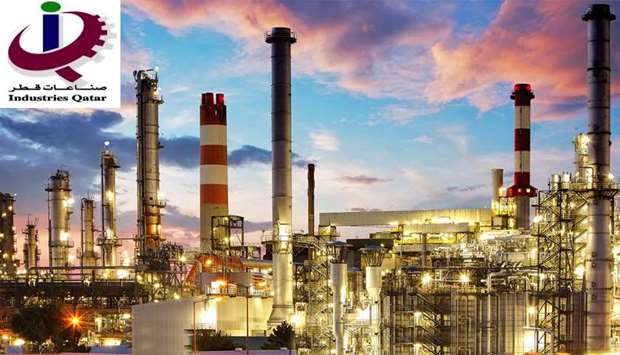Industries Qatar (IQ) posted a half yearly net profit of QR1.5bn and earnings per share of QR0.24, the region’s industrial giant said on Thursday.
In the same period in 2018, IQ had registered a net profit of QR2.5bn and earnings per share of QR0.41.
The net profit for the second quarter of 2019 amounted to QR0.8bn, a “commendable” increase of 16% over the first quarter of 2019.
“This improvement was primarily driven by a gradual recovery in the product prices, most notably in the prices of polyethylene and steel products,” said IQ, one of the region’s industrial giants with interests in the production of a wide range of petrochemical, fertiliser and steel products.
“The earnings per share of the prior period have been reported taking into effect the stock split transaction mandated by Qatar Financial Markets Authority,” IQ stated.
Cash and bank balances across the group stand at QR10.7bn after paying 2018 dividends of QR3.6bn, IQ said.
During the reporting period, the financial and operational performance of the group was “materially affected” due to several factors including “tightening trading conditions and uncertain economic environment” due to the drop in crude oil prices at the end of 2018.
Consequently, IQ noted that the demand for many of the group’s products remained “somewhat low” and the product prices have “softened” owing to uncertainty surrounding the global economy.
Product prices, on average, declined by nearly 10% compared to last year, which contributed to a nearly QR0.6bn reduction in the group’s year-to-date net earnings.
Year-to-date sales volumes, on the other hand, were also moderately down on the backdrop of lower production due to planned periodic maintenance, which had a notable effect on the group’s net profit.
However, the group was able to “improve its performance” during the second quarter compared to the first quarter of 2019. This improvement was primarily driven by a gradual recovery in product prices, most notably in the prices of polyethylene and steel products.
The cash position across the group remained strong with total cash across the group of QR10.7bn after paying the 2018 dividend of QR3.6bn and total debt of only QR10.9mn, “affirming the group’s strong liquidity position”.
Reported revenue for the half yearly period that ended in June was QR2.3bn, a “moderate” decrease of 24% over the same period of 2018. This year-on-year reduction was due to a combined effect of lower selling price and sales volumes.
Sales volumes in the steel segment were “moderately down” due to weak demand in the domestic market and the increasing international competition. The fierce international competition has forced the prices to decline further compared to the previous year.
On the other hand, on a like-for-like basis, management reporting revenue - assuming proportionate consolidation - was QR6.7bn, a decrease of QR1.5bn or 18%, versus the same period of 2018.
This year-on-year reduction was also driven by the combined effect of lower selling prices and sales volumes across all segments.
Product prices were down nearly 10% across the group’s product suite on the backdrop of lower crude oil prices, while sales volumes were also down by almost 9% on account of weaker demand, periodic planned maintenance and unplanned outages.
Prices of petrochemical products were “moderately down” compared to the first half of 2018. A “marginal reduction” in crude oil prices and “muted demand” in some major markets resulted in weaker petrochemical product prices. Petrochemicals sales volumes were also down on last year due to periodic planned shutdowns and unplanned outages.
Fertiliser prices, on the other hand, have “improved” very marginally compared to the same period of 2018. This marginal increase was driven by a combination of factors including improved demand from some of the large agricultural economies, increased raw material costs and regulatory pressure on non-environment compliant producers.
Sales volumes, however were marginally down on last year on account of slightly lower production.
Prices in the steel segment were also moderately down year-on-year due to a number of reasons, including weak domestic demand and higher global competition. In the domestic market, the prices were affected by the relatively lower demand in the current period due to the market almost reaching its matured stage as the majority of the large infrastructure projects have been completed, while the regional demand was also affected by the availability of low price steel from non-GCC producers, especially Turkey.
Prices in other markets, such as the Far East, were affected by the supply of low cost steel from countries like China. The fierce international competition together with muted local consumption of steel has affected the volumes sold during the current year, and the steel sales volumes were down moderately on last year.
Moody's Investor Services (MIS) has updated its credit opinion on the group and maintained A1 rating with a Stable Outlook.

